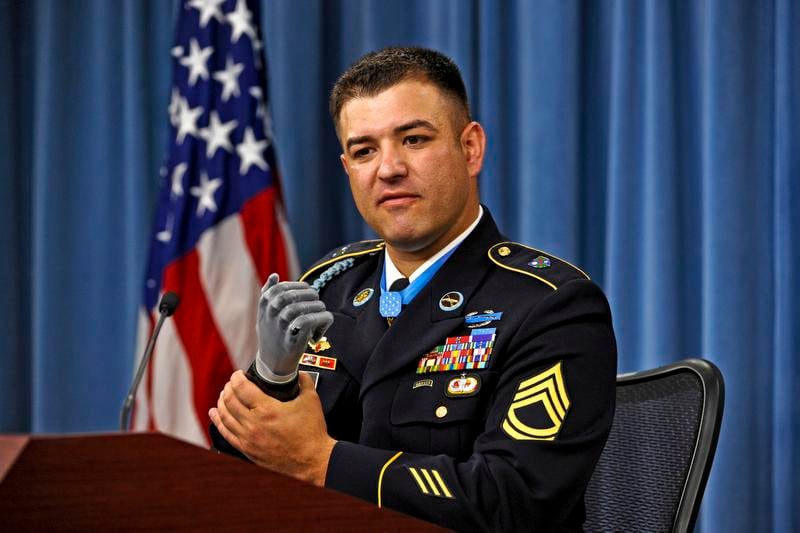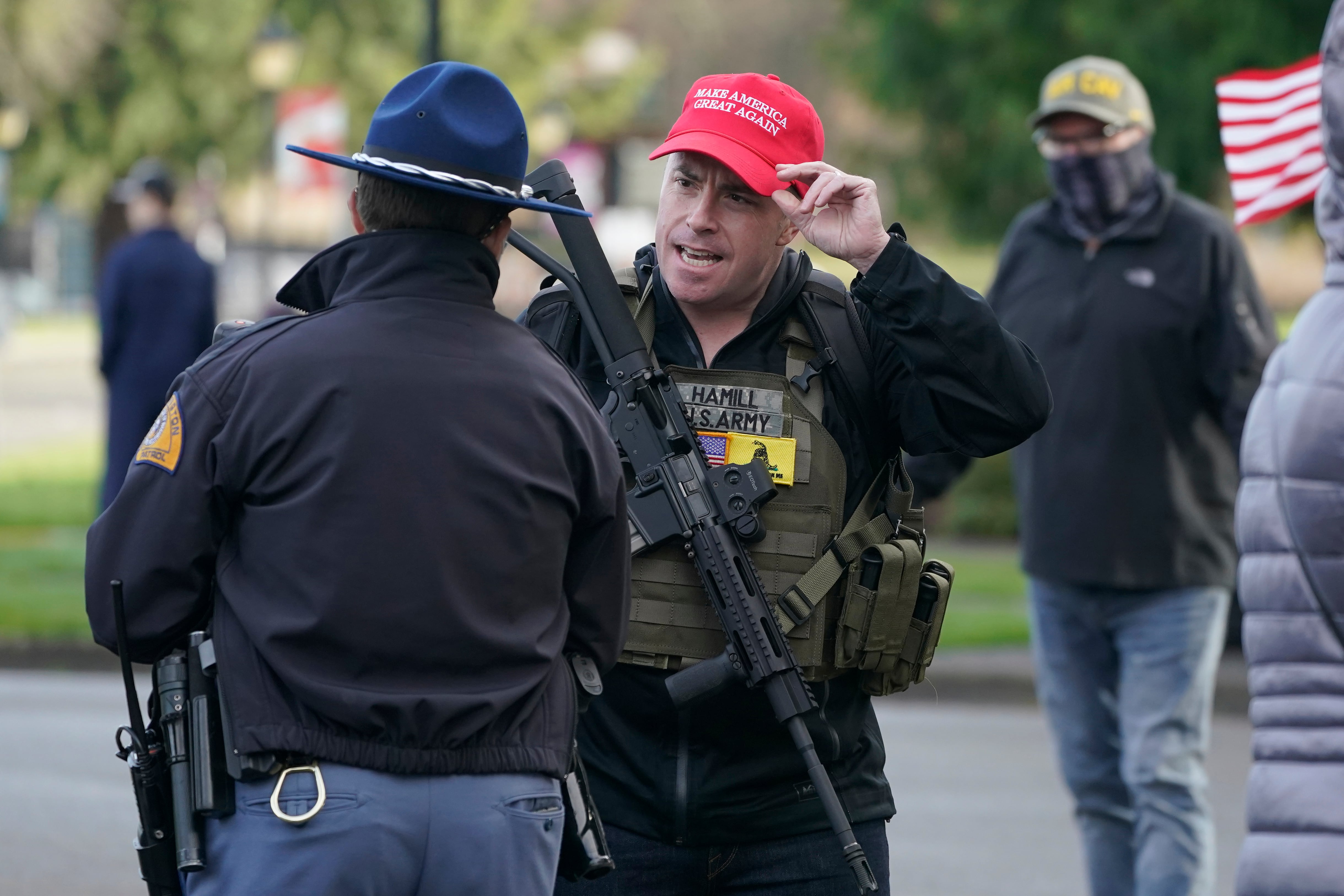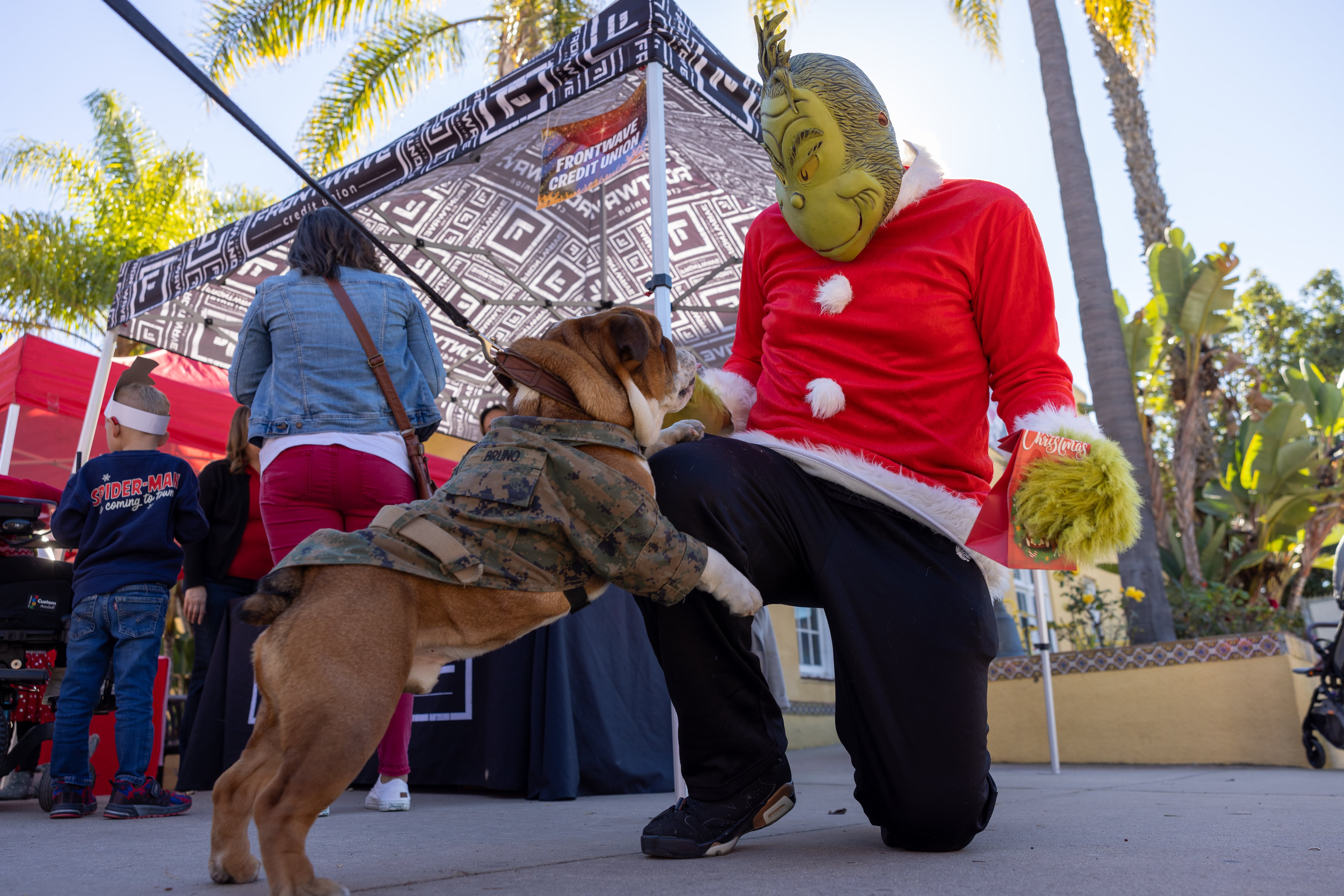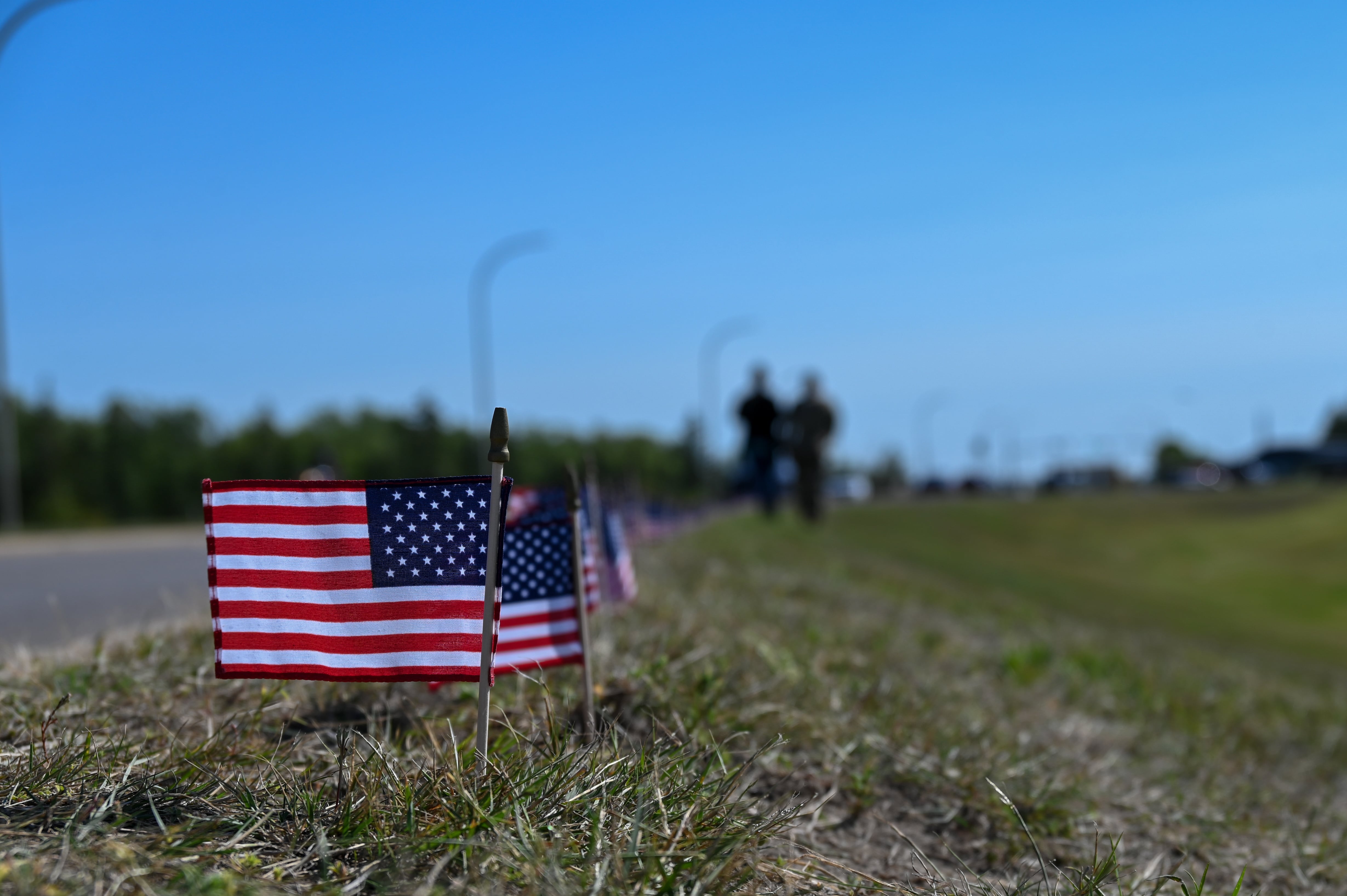Retired Army Master Sgt. Leroy Petry, a 2011 recipient of the Medal of Honor earned for saving the lives of two fellow Rangers during a hellacious 2008 battle in Afghanistan, recently visited troops at Fort Eustis to talk about suicide prevention and mental health. After returning home, he noticed someone stole his Medal of Honor license plate. Petry spoke with Military Times about the theft, what the plate means to him, and his mission to help troops and veterans better cope with mental health issues.
Some questions and answers have been edited for brevity and clarity.
MT: Leroy, what happened? Who would steal a Medal of Honor license plate?
LP: I went to Virginia to talk to the troops about suicide prevention and resiliency, with a group of friends. And when I parked at the airport at Seattle-Tacoma airport, I left for three days and came back on 9/11. I came home and you know, how many times do we really think about looking at our vehicle’s front license plate? Not too often. I went to the store that next day and my wife and I were walking back toward the truck and the first thing I noticed was, ‘Hey, where’s my front license plate?’ And I went back and I checked my home camera footage (and it showed) I came back from the airport without my front license plate. And that’s when it hit me that somebody took my license plate while I was parked at the airport.
MT: Who would do such a thing? And why would anybody take that? I mean, they know, you’re the Medal of Honor recipient. There’s not a ton of folks out there who earned this.
LP: That’s the golden question. I hope they catch the person that did it so that we could have those answers but for right now, I posted a thing on Facebook, which I kind of joked and I said it’s probably a gamer that plays Call of Duty who thought they could earn the Medal of Honor that way. Or someone disgruntled or some PX Ranger or somebody.
Some of the comments were hilarious, though. They said maybe somebody took it so they could get front-row parking at Lowe’s or Home Depot. I didn’t think too much of it until I started having to go to acquire a new license plate. And because it’s a specialty plate that’s rare, it has to be custom made every time they strike one and it takes some time and a lot of paperwork and running around. I drove to the capital, to different DMVs and it took a lot of time, all the paperwork. I reported it to the Seattle Port Authority. They were going to do some reviews and see if they could pull it up on the cameras. And then they reported it in the category that it goes nationwide, just like a stolen vehicle. It’s so if anybody sees it, it’ll come up stolen. And so I know there’s a lot of folks working on it and a lot of veterans and people out, keeping a lookout for it. And so if somebody took it just as a trophy to hang in their garage, It’s going to be one of those things that they probably won’t able to show anybody because they will admit their own guilt.
MT: When did you get the plate and tell me what it what it means to you personally?
LP: I received the plate shortly after I received the medal. And up until then, I had Purple Heart plates on my vehicle. And for me, it’s not about ‘Oh, look at me.’ In fact, a lot of folks think it’s kind of almost hazardous to have on your vehicle, that there’s a lot of people that wish ill things toward the military and don’t agree with some of the wars and they said that that makes you a target kind of thing. Or maybe somebody will break your windows or attack your vehicle. But it’s one of those things that I have that pride of serving in the military. And one of our recipients probably said it the best. It’s not having been given the Medal of Honor. But knowing that my guys that were around me that day thought I was worthy of being put in for it. And to me it represents the medal itself. And I have that plate as a signal of pride for all our veterans.
RELATED

MT: Talk about what you were doing when the plate was stolen.
LP: One of the foundations that I’m actively engaged with is the Troops First Foundation. We went to suicide prevention conventions put on by DoD and the VA and I wasn’t too impressed by them. But I met a lot of great contacts there, there was some good content. But we realized that we have every resource under the sun to help all our troops and our veterans with just about everything. And the ones that we’re losing are the ones that aren’t calling into the 1-800 numbers and aren’t walking into the facilities, and we said, ‘How do we find those folks?’ And so we were trying to encourage more honest communication and dialogue and getting our veterans to do exactly what we’ve always done — take care of our own — and call one veteran a week and have an honest conversation and get them help if they need it. And to have the self-honesty to say, ‘Hey, I need help and get rid of the stigma’ because, especially now during this coronavirus, the worst thing you could do for somebody with mental health issues is isolate them.
MT: Who were you meeting with?
LP: We were in Fort Eustis, Virginia, with Gen. Paul Funk, commander of the Army’s Training and Doctrine Command, talking to a lot of the young soldiers — just about every rank of soldier throughout the chain of command and as young as the ones that are fresh out of basic training — and starting to get that in their minds at a younger age — to encourage them to take care of themselves, mentally. And I tell them that I joined when the military slogan was ‘Be all you can be.’ And it wasn’t for yourself. It was for your troops to your right and your left. And that were so quick to say, ‘I hurt my ankle. I can’t go on the run tomorrow.’ And we’re not so quick to say, ‘I need to take a knee. I need to go see a psychologist. I need to get myself in the right mindset back at 100 percent so I can do my job the best I can for the people to my right and to my left.'

MT: So you come you come back. It’s the 19th anniversary of 9/11 and your plate is gone.
LP: Yeah, it was a little disheartening. I had the security screws that take a special key to take them out for that sheer reason that it could be a trophy for some people. ‘Oh, look what I got.' The thing is, is that you didn’t. You did not get it honorably.
MT: Are you going to do anything different with the new plate?
LP: There’s been different comments (on my Facebook page). People say you should wire it to your truck battery so they get a nice shock when they try to take it. But I think I’m gonna have a friend of mine who’s a welder weld me a frame that I can bolt onto the frame.
MT: What’s your message for whoever took this?
LP: I hope you know what you did. It took a lot of my time to get a new one. And to me, the most precious resource that I have is my time. I lost a lot of it with my family. On all my deployments, I still am engaged on the road quite a bit with our troops and our veterans supporting them. And I can’t get that time back with my family that is taken. And if it’s for something that is a good reason, I could live with that. But if it’s for something that was done with ill intent, then it hurts.
MT: What would be a good reason to steal your license plate?
LP: I can’t think of one.
Howard Altman is an award-winning editor and reporter who was previously the military reporter for the Tampa Bay Times and before that the Tampa Tribune, where he covered USCENTCOM, USSOCOM and SOF writ large among many other topics.





